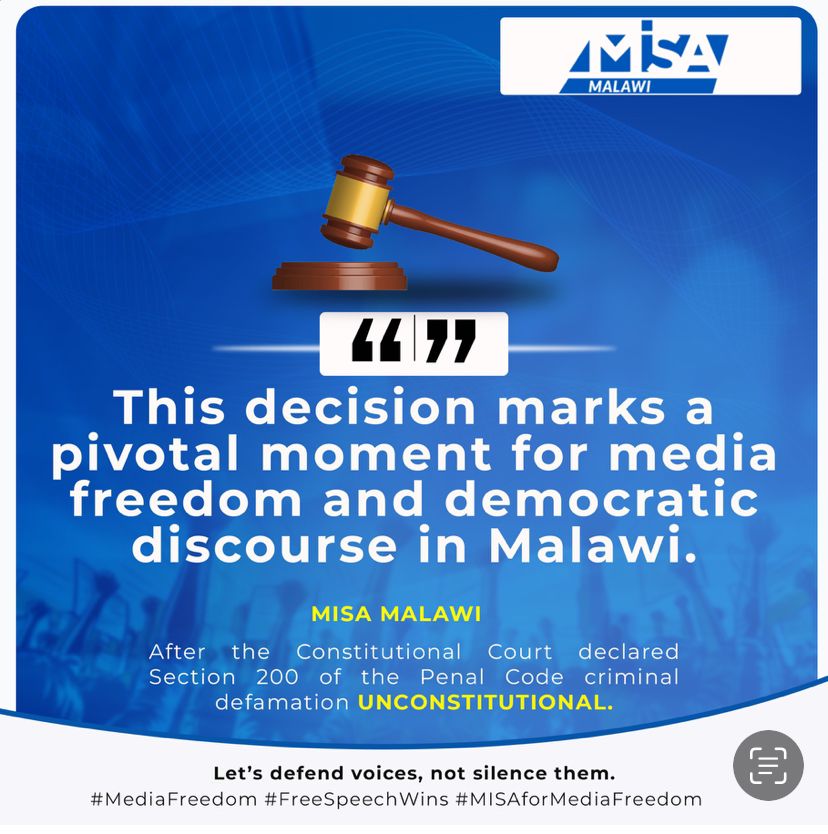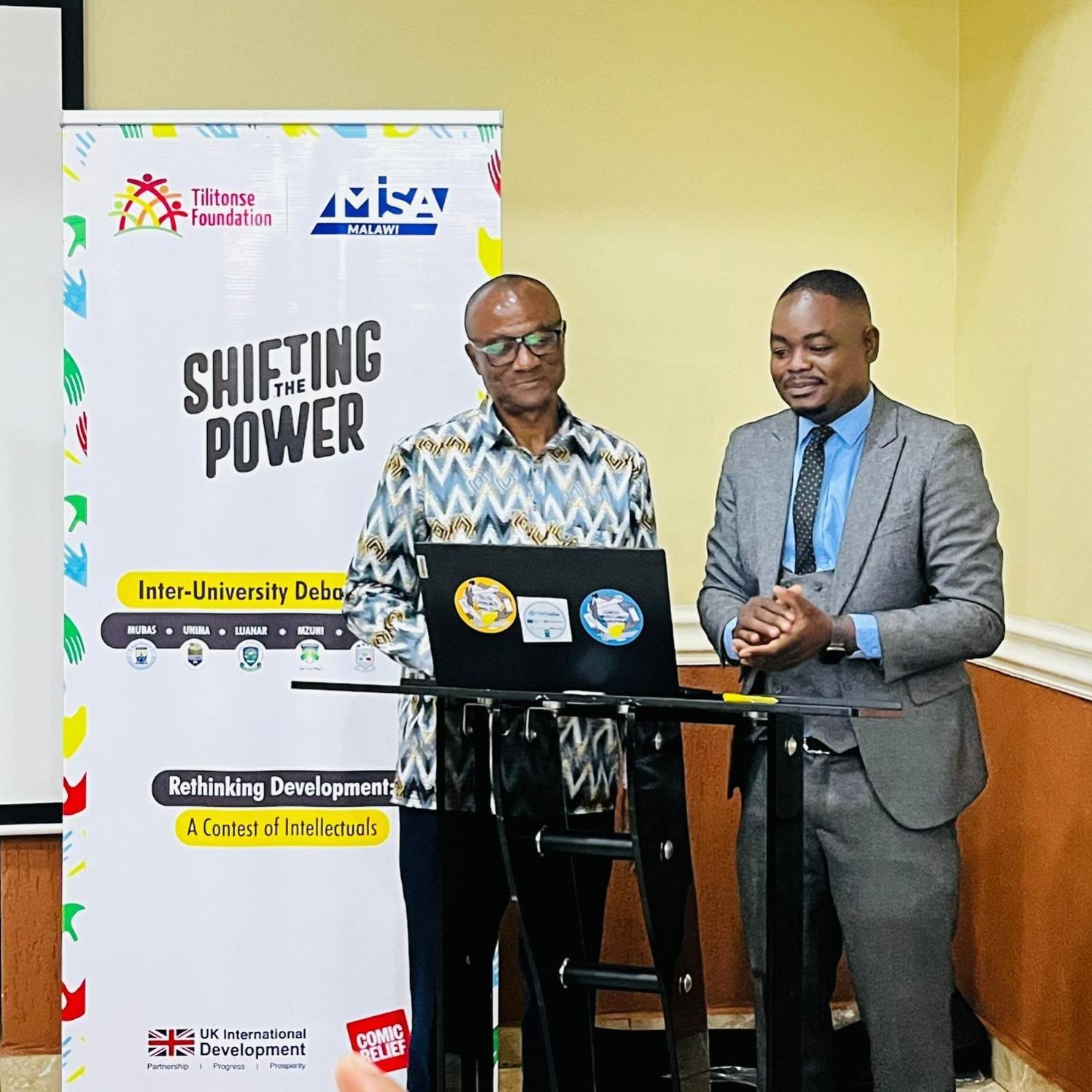MISA Malawi celebrates a landmark victory for freedom of expression with the High Court of Malawi (sitting as a Constitutional Court) declaring section 200 of the Malawi Penal Code, which criminalized defamation, unconstitutional.
The court’s decision stems from the case of Joshua Chisa Mbele v The Director of Public Prosecutions & The Attorney General in which Mbele challenged the constitutionality of the now void section. The challenge was made amidst pending criminal proceedings against him for alleged defamatory statements concerning a public official.
The section reads, “Any person who, by print, writing, painting, effigy, or by any means otherwise than solely by gestures, spoken words, or other sounds, unlawfully publishes any defamatory matter concerning another person, with intent to defame that other person, shall be guilty of the misdemeanor termed “libel”.”
Mbele argued that the provision infringed on his right to freedom of expression under section 35 of the Constitution and was inconsistent with Malawi’s obligations under regional and international human rights law.
The ruling marks a pivotal moment for media freedom and democratic discourse in Malawi.
For decades, MISA Malawi has been advocating for the repeal of criminal defamation laws, recognising their chilling effect on journalists, activists, and ordinary citizens, stifling legitimate public discourse and critical reporting.
The threat of arrests and imprisonment for alleged defamatory statements has long been a significant barrier to the free flow of information and the holding of public officials accountable.
In its judgment, the Constitutional Court affirmed that the right to freedom of expression is a foundational value in Malawi’s constitutional democracy. We call upon the Malawi Government to immediately affirm the position of the court and resist any temptation to appeal the ruling.
The Court rightly found that civil remedies for defamation provide a less restrictive and more proportionate alternative to criminalisation. It also highlighted that criminal defamation, particularly with the threat of imprisonment, disproportionately limits freedom of expression and is not the least restrictive means available for protecting reputation.
This judgment aligns Malawi with progressive regional and international human rights jurisprudence, which strongly supports the decriminalisation of defamation. As the Court noted, the breadth of Section 200, its potential for arbitrary enforcement, and its deterrent effect on legitimate public discourse rendered it incompatible with constitutional guarantees.
MISA Malawi applauds the Constitutional Court for upholding the principles of justice and freedom, and for recognizing that in an open and democratic society, civil remedies are sufficient to address reputational harm. We particularly commend Mbele for taking a bold step in challenging the undemocratic laws and Justices Chifundo Kachale, Fiona Mwale and Mzondi Mvula for their courageous and progressive ruling.
With Section 200 of the Penal Code now unconstitutional and void, and with no further prosecutions to be brought under it, journalists and all Malawians can exercise their right to freedom of expression more freely and without fear of criminal sanctions. This is a monumental step forward for press freedom and democratic accountability in Malawi.
MISA Malawi remains committed to working with all stakeholders to ensure that media freedom and freedom of expression are fully protected and promoted in Malawi.
Media contacts
MISA Malawi Chairperson Golden Matonga
Cell: +265 99 616 9705 or email goldenmatonga@gmail.com
MISA Malawi National Director Aubrey Chikungwa
Cell: +265 999 327 311 or email info@misamalawi.org









